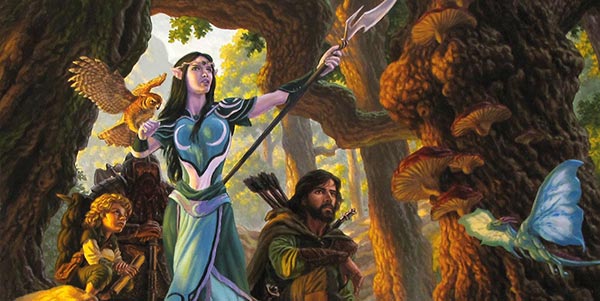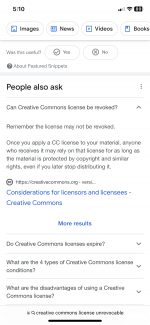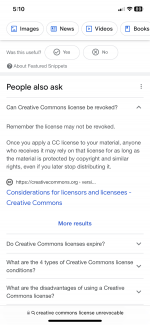Hundreds of game publishers sigh in relief as, after extensive pressure exerted by the entire open gaming community, WotC has agreed to leave the original Open Gaming License untouched and put the whole of the 5E rules into Creative Commons.
So, what's happened?

 www.dndbeyond.com
www.dndbeyond.com
WotC has a history of 'disappearing' inconvenient FAQs and stuff, such as those where they themselves state that the OGL is irrevocable, so I'll copy this here for posterity.
What does this mean?
The original OGL sounds safe for now, but WotC has not admitted that they cannot revoke it. That's less of an issue now the 5E System Reference Document is now released to Creative Commons (although those using the 3E SRD or any third party SRDs still have issues as WotC still hasn't revoked the incorrect claim that they can revoke access to those at-will).
At this point, if WotC wants anybody to use whatever their new OGL v1.x turns out to be, there needs to be one heck of a carrot. What that might be remains to be seen.
Pathfinder publlsher Paizo has also commented on the latest developments.

 www.enworld.org
www.enworld.org
So, what's happened?
- The Open Gaming Licence v1.0a which most of the D&D third party industry relies on, will be left untouched for now.
- The whole of the D&D 5E SRD (ie the rules of the game less the fluff text) has been released under a Creative Commons license.
OGL 1.0a & Creative Commons
Over the past few weeks you, the community, have made your voices heard. And we’ve listened. OGL 1.0a will remain untouched AND the entire SRD 5.1...
WotC has a history of 'disappearing' inconvenient FAQs and stuff, such as those where they themselves state that the OGL is irrevocable, so I'll copy this here for posterity.
When you give us playtest feedback, we take it seriously.
Already more than 15,000 of you have filled out the survey. Here's what you said:
The feedback is in such high volume and its direction is so plain that we're acting now.
Our goal here is to deliver on what you wanted.
So, what about the goals that drove us when we started this process?
We wanted to protect the D&D play experience into the future. We still want to do that with your help. We're grateful that this community is passionate and active because we'll need your help protecting the game's inclusive and welcoming nature.
We wanted to limit the OGL to TTRPGs. With this new approach, we are setting that aside and counting on your choices to define the future of play.
Here's a PDF of SRD 5.1 with the Creative Commons license. By simply publishing it, we place it under an irrevocable Creative Commons license. We'll get it hosted in a more convenient place next week. It was important that we take this step now, so there's no question.
We'll be closing the OGL 1.2 survey now.
We'll keep talking with you about how we can better support our players and creators. Thanks as always for continuing to share your thoughts.
Kyle Brink
Executive Producer, Dungeons & Dragons
Already more than 15,000 of you have filled out the survey. Here's what you said:
- 88% do not want to publish TTRPG content under OGL 1.2.
- 90% would have to change some aspect of their business to accommodate OGL 1.2.
- 89% are dissatisfied with deauthorizing OGL 1.0a.
- 86% are dissatisfied with the draft VTT policy.
- 62% are satisfied with including Systems Reference Document (SRD) content in Creative Commons, and the majority of those who were dissatisfied asked for more SRD content in Creative Commons.
The feedback is in such high volume and its direction is so plain that we're acting now.
- We are leaving OGL 1.0a in place, as is. Untouched.
- We are also making the entire SRD 5.1 available under a Creative Commons license.
- You choose which you prefer to use.
Our goal here is to deliver on what you wanted.
So, what about the goals that drove us when we started this process?
We wanted to protect the D&D play experience into the future. We still want to do that with your help. We're grateful that this community is passionate and active because we'll need your help protecting the game's inclusive and welcoming nature.
We wanted to limit the OGL to TTRPGs. With this new approach, we are setting that aside and counting on your choices to define the future of play.
Here's a PDF of SRD 5.1 with the Creative Commons license. By simply publishing it, we place it under an irrevocable Creative Commons license. We'll get it hosted in a more convenient place next week. It was important that we take this step now, so there's no question.
We'll be closing the OGL 1.2 survey now.
We'll keep talking with you about how we can better support our players and creators. Thanks as always for continuing to share your thoughts.
Kyle Brink
Executive Producer, Dungeons & Dragons
What does this mean?
The original OGL sounds safe for now, but WotC has not admitted that they cannot revoke it. That's less of an issue now the 5E System Reference Document is now released to Creative Commons (although those using the 3E SRD or any third party SRDs still have issues as WotC still hasn't revoked the incorrect claim that they can revoke access to those at-will).
At this point, if WotC wants anybody to use whatever their new OGL v1.x turns out to be, there needs to be one heck of a carrot. What that might be remains to be seen.
Pathfinder publlsher Paizo has also commented on the latest developments.
We welcome today’s news from Wizards of the Coast regarding their intention not to de-authorize OGL 1.0a. We still believe there is a powerful need for an irrevocable, perpetual independent system-neutral open license that will serve the tabletop community via nonprofit stewardship. Work on the ORC license will continue, with an expected first draft to release for comment to participating publishers in February.
Over 1,500 Publishers Support Paizo's Upcoming Open RPG Creator's License
Paizo has revealed some of the 1,500+ tabletop RPG publishers who have expressed an interest in their new Open RPG Creator's License (ORC), describing the group as the 'ORC Alliance'. The license itself is still being worked on, so these 1,500 publishers have not actually seen it or signed...
 www.enworld.org
www.enworld.org





